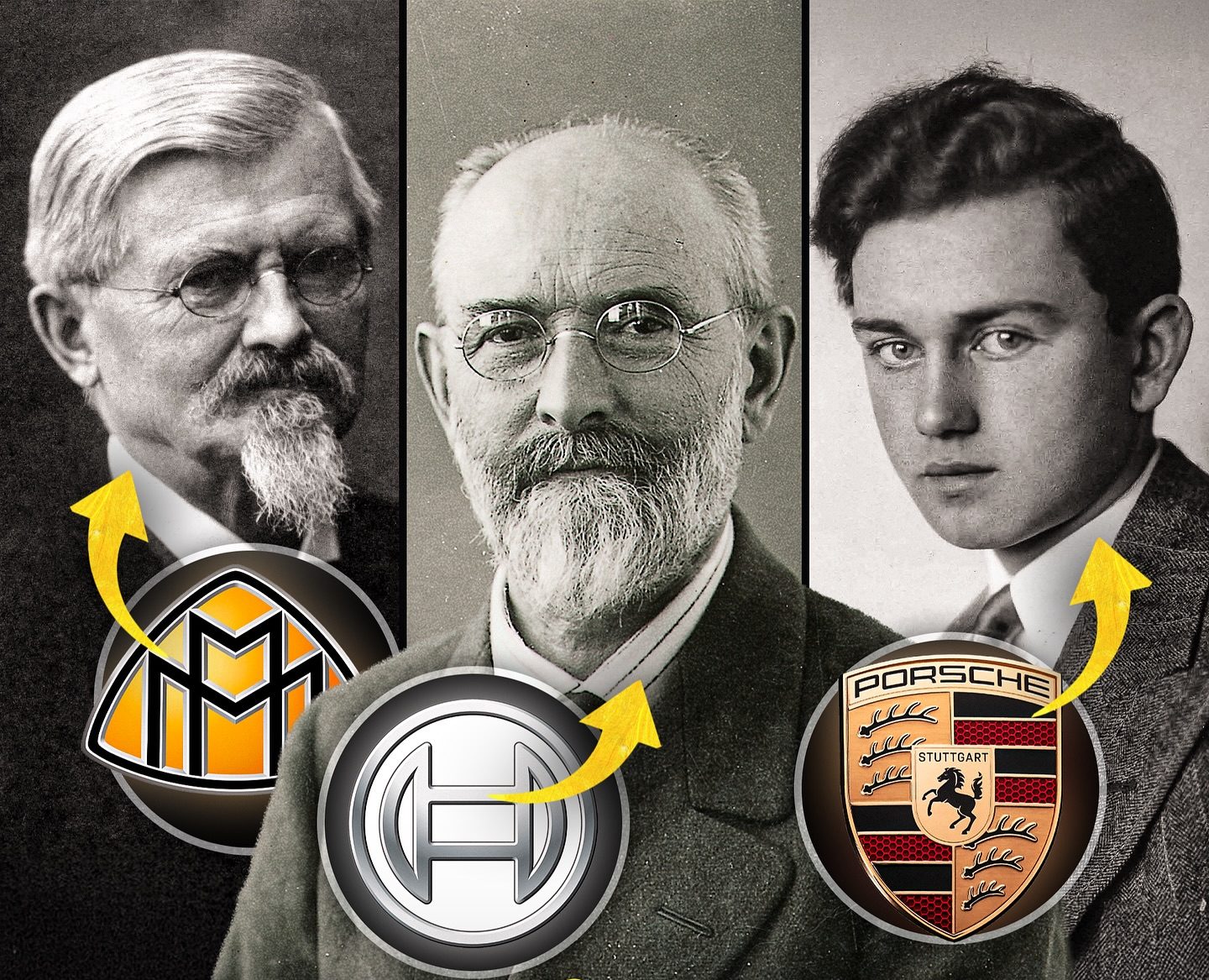They Invented the Modern Car — The German Engineers Who Changed How the World Moves Forever
You’ve probably heard the names — Mercedes, BMW, Porsche, Diesel, Maybach. They’re not just brands. They’re icons. Synonymous with power, speed, precision, and that unmistakable German engineering. But behind each shiny badge is a story. A man. A vision. And a dream that started long before horsepower was measured or speed limits existed.
This isn’t about corporate empires. This is about a group of German inventors who quietly — and sometimes painfully — built the very foundation of the car industry as we know it. And most people don’t even know their names.
Let’s meet the men who turned gears, ideas, and raw passion into motion.
Karl Benz: The Father of the First Practical Car
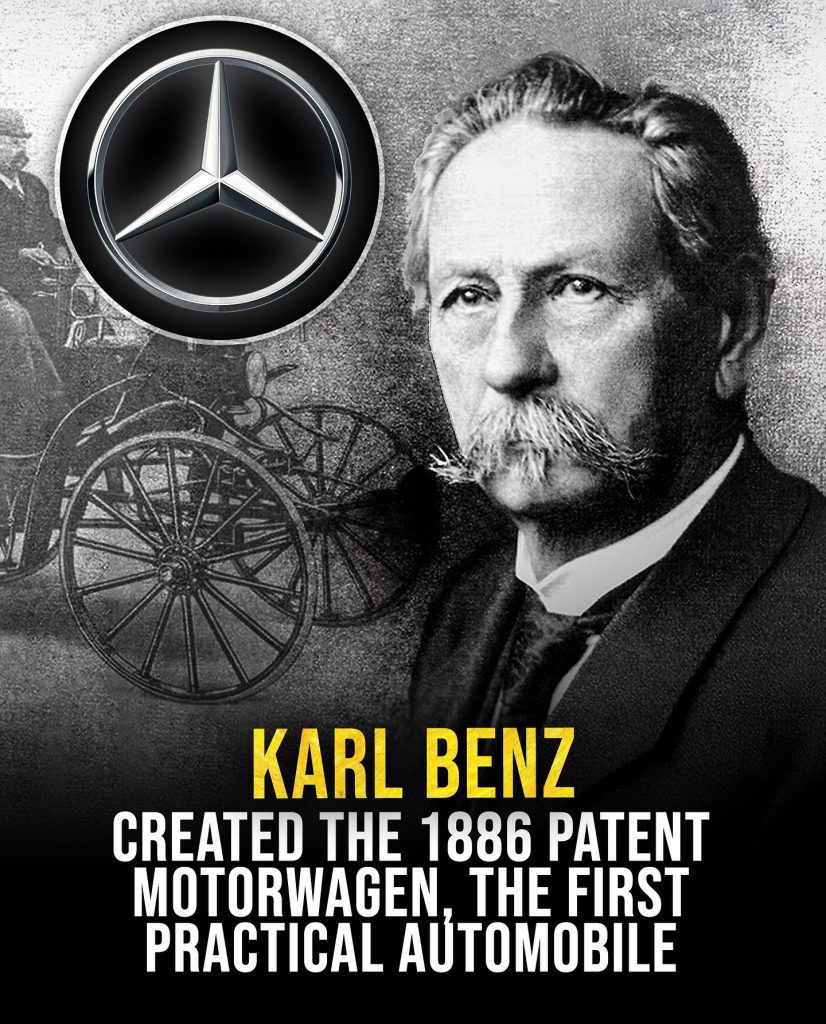
In the late 1800s, when horses ruled the streets and carriages creaked on cobblestone, Karl Benz was sketching something radical. A three-wheeled motorized vehicle, powered by gas — not hay.
People laughed at him. They said it wouldn’t work. But in 1886, he unveiled the Patent Motorwagen — and history changed.
It was his wife, Bertha Benz, who secretly drove it over 60 miles to prove it could actually go the distance. That journey became the world’s first long-distance road trip. The Benz name would later merge with Daimler, forming what we now know as Mercedes-Benz.
The brand didn’t just make cars. It proved they could replace horses.
Gottlieb Daimler & Wilhelm Maybach: The Speed Dreamers
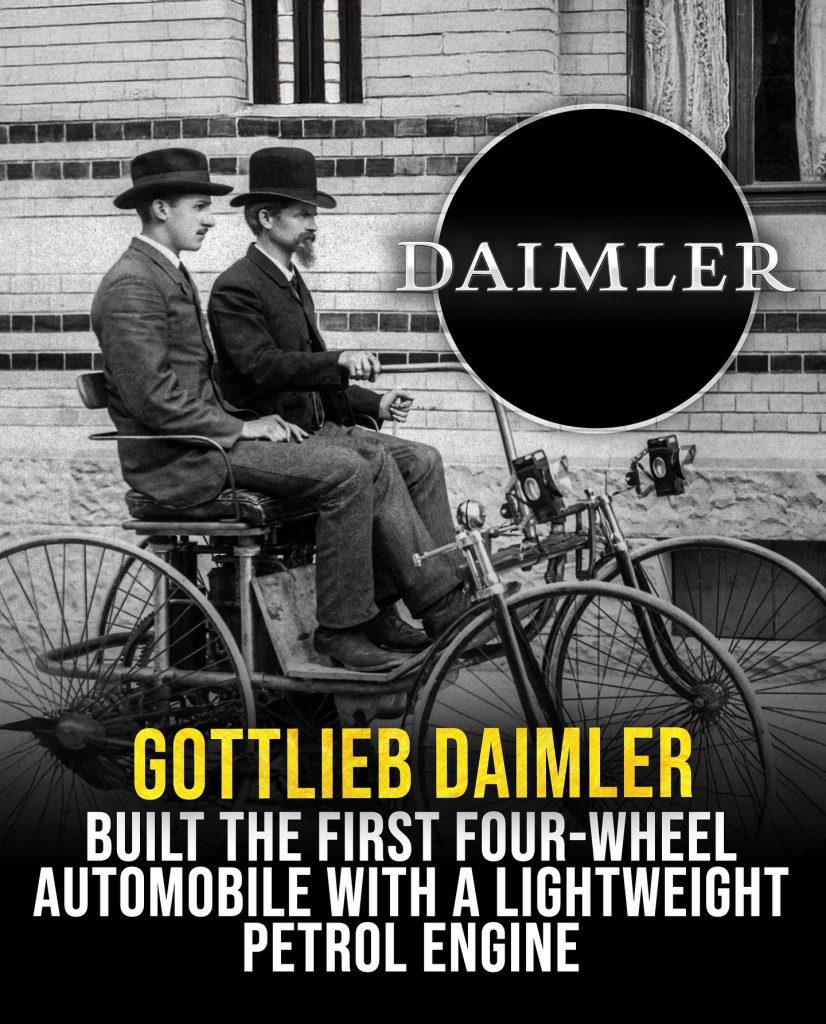
While Benz worked on practicality, Gottlieb Daimler and his genius partner Wilhelm Maybach had speed on the brain. In 1885, they installed a lightweight internal combustion engine into a wooden bicycle frame — making what many call the world’s first real motorcycle.
But they didn’t stop there.
Soon, they were building four-wheel machines powered by high-revving gasoline engines. By 1901, they launched Mercedes, named after the daughter of one of their financiers.
Maybach would later become a luxury icon himself, with Maybach cars standing today as a symbol of executive luxury.
These weren’t just cars. These were dreams on wheels.
Robert Bosch: The Man Who Made Cars Reliable
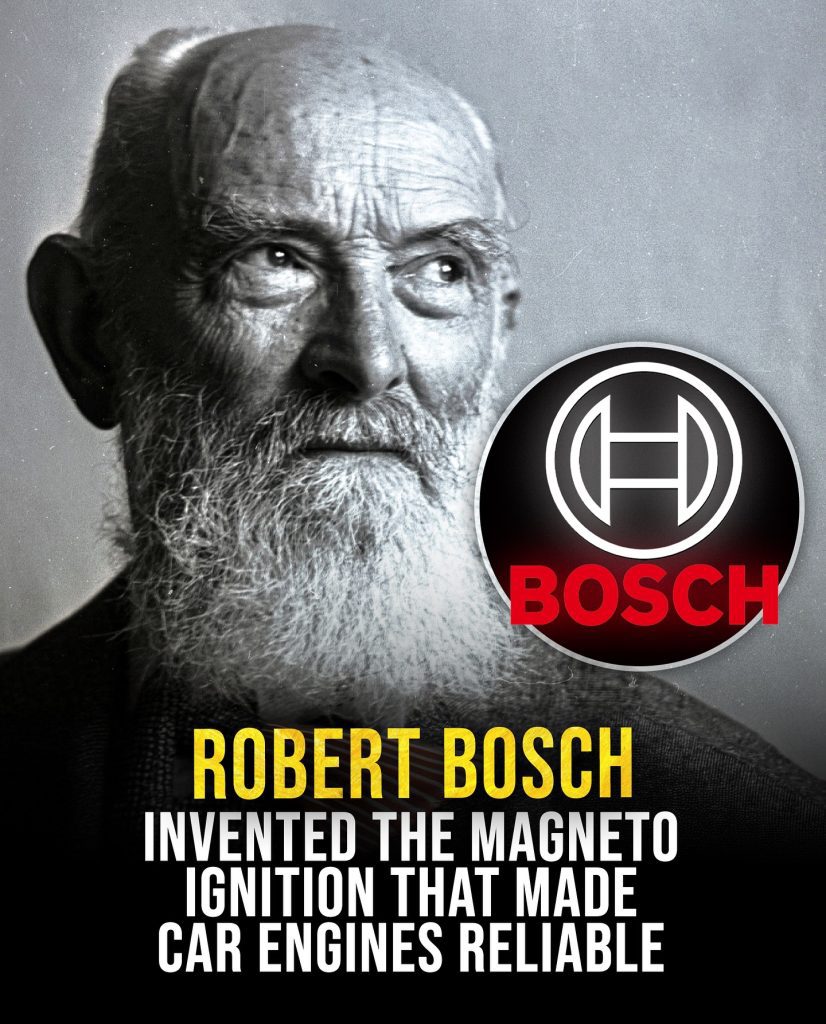
You can’t go far if your car won’t start. In the early days of combustion engines, ignition systems were unreliable — often stalling or failing altogether. Enter Robert Bosch.
In 1902, he invented the magneto ignition system, a compact device that made starting engines easier and far more dependable. Without it, cars would’ve remained novelty toys.
Bosch’s innovation helped transform automobiles into something everyday people could trust. Today, Bosch is one of the biggest names in automotive components — from sensors to brakes.
His story? Quiet genius. Massive impact.
Rudolf Diesel: The Power Revolution That Runs the World
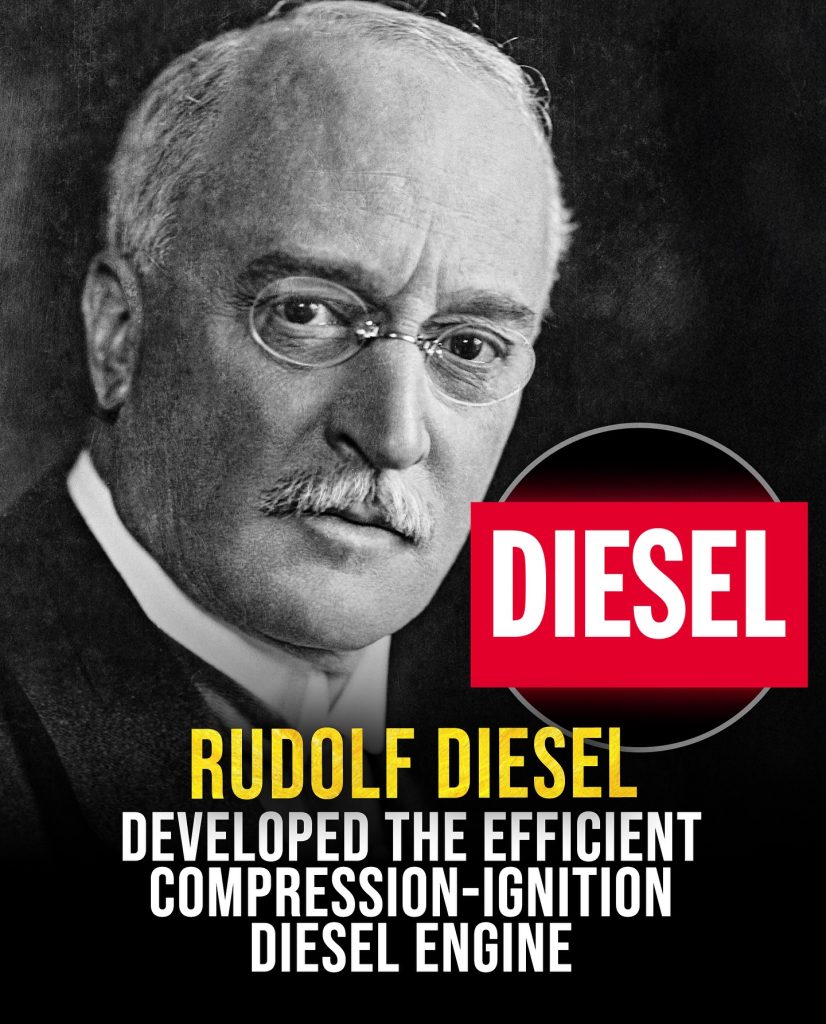
Not every name becomes a fuel type — but Rudolf Diesel earned it.
He believed there had to be a more efficient way to power engines than gasoline. After years of experimenting, he created the compression-ignition diesel engine — an invention that changed freight, farming, and industry forever.
Tragically, Diesel disappeared under mysterious circumstances in 1913 while crossing the English Channel. Some say it was suicide, others suspect murder. But his engine lived on — becoming the backbone of heavy-duty transport worldwide.
Diesel didn’t just change cars. He changed entire economies.
Ferdinand Porsche: The Engineer Who Designed a Nation’s Icon
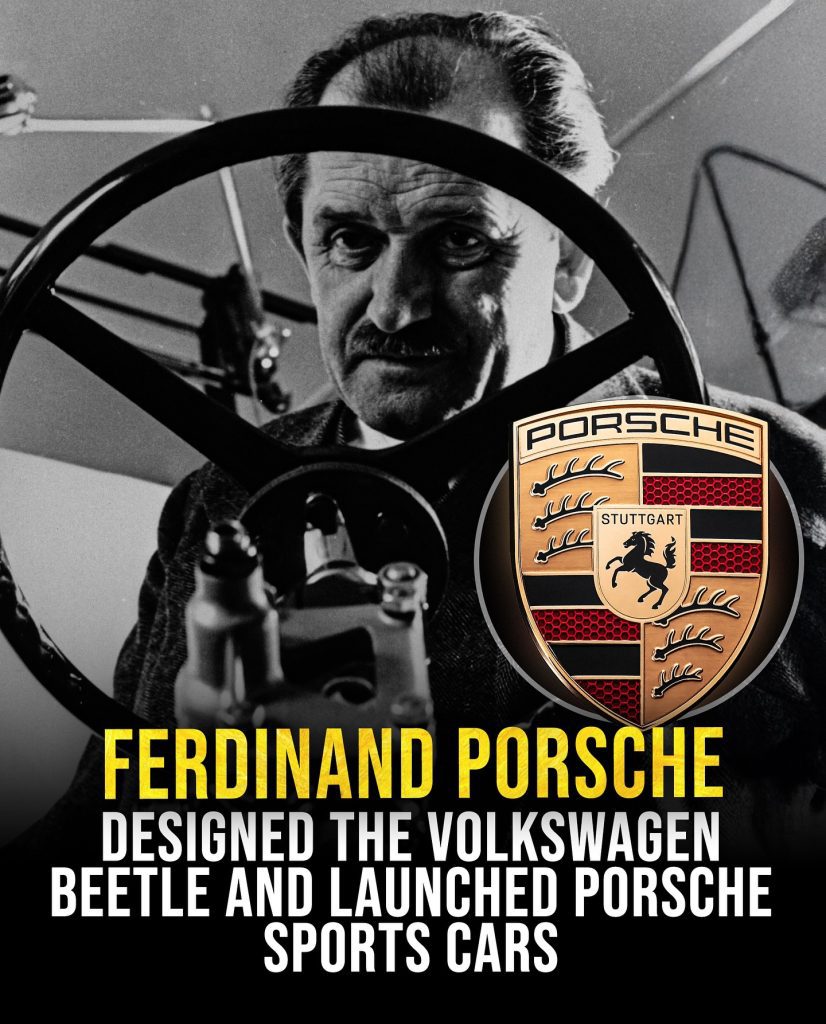
Before Porsche became a luxury brand, Ferdinand Porsche was designing cars for the people. Literally. In the 1930s, he was hired to create the “people’s car” — a small, affordable vehicle the average German family could own.
The result? The Volkswagen Beetle.
Love it or hate it, the Beetle became one of the best-selling cars in history. But Porsche’s ambitions didn’t stop there. After the war, he launched a line of performance cars bearing his name — and the Porsche 911 became a motorsport legend.
His legacy is a strange mix of politics, performance, and pop culture. But one thing’s certain — Ferdinand Porsche shaped how the world sees German speed.
Karl Rapp: The Quiet Beginning of BMW
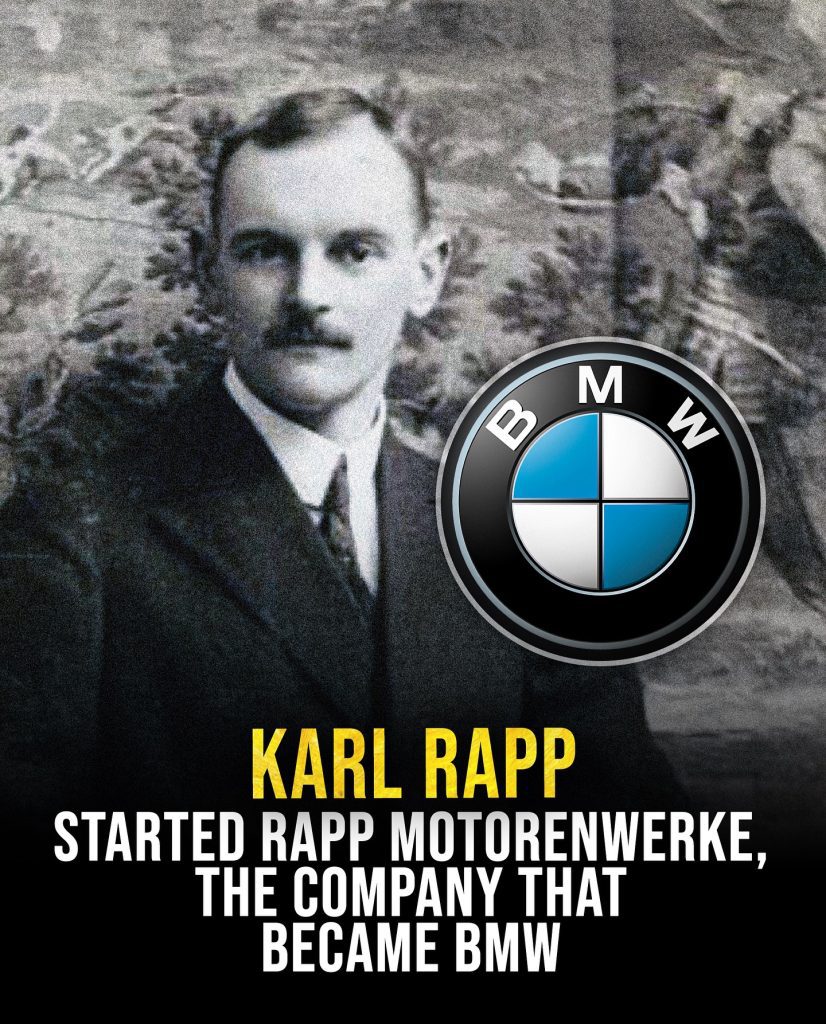
Not all innovators get the spotlight. Karl Rapp isn’t a household name, but his company — Rapp Motorenwerke — eventually evolved into one of the most iconic car brands in history: BMW.
It started with aircraft engines, not cars. During World War I, Rapp’s firm made airplane engines for the German army. After the war, the company pivoted to motorcycles and later, automobiles.
BMW became the definition of “driving pleasure,” merging performance with luxury in a way few brands could match. And it all started with a small aircraft engine shop run by a quiet engineer.
Adam Opel: From Sewing Machines to the Streets
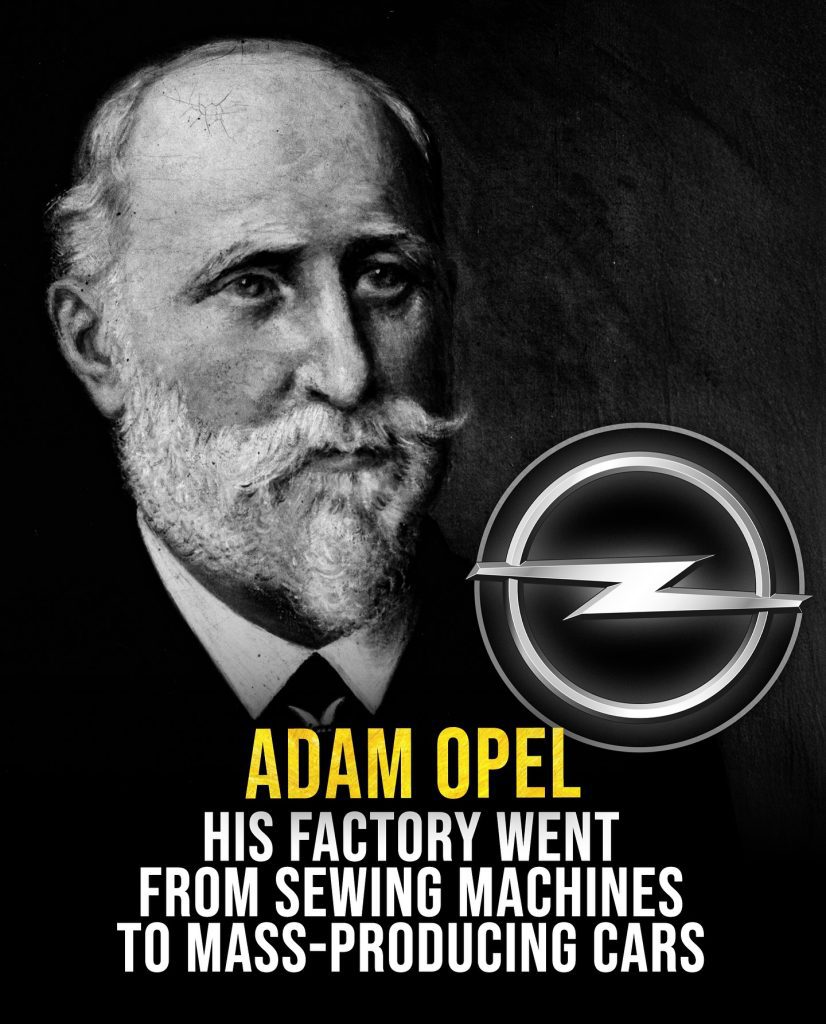
Adam Opel probably never imagined his name on a car. In the 1800s, he built sewing machines. Then bicycles.
After his death, his sons took a big leap — they entered the car business. And they did it smart. Instead of building luxury vehicles, Opel focused on affordable mass production.
Their cars were practical, modest, and accessible. That strategy paid off, turning Opel into a beloved German brand for the everyday family.
He may not have been a car man himself, but his factory became one of Germany’s most important automakers.
Why These Men Still Matter Today
If you’re sitting in a car right now, chances are you’re surrounded by the fingerprints of these German pioneers. The ignition system. The engine layout. The shape of the dashboard. The brand name on the steering wheel.
What’s crazy is — they weren’t trying to build empires. Most of them just wanted to make things better. Easier. Faster. Stronger.
Some were dreamers. Others were obsessed tinkerers. A few never lived to see their inventions change the world. But change it they did.
“These guys didn’t just invent parts. They invented freedom,” a Reddit comment read under a Bosch tribute post.
Today, people brag about horsepower and 0-60 times. But every time you turn the key or push a start button, you’re connecting with over a century of bold, relentless German engineering.

